usayit
No longer a newbie, moving up!
- Joined
- Nov 15, 2003
- Messages
- 9,521
- Reaction score
- 347
- Can others edit my Photos
- Photos OK to edit
I don't necessarily agree...
I don't believe there will be photography "masters" per say but there will be "masters" of a particular art or subject that uses photography as their medium. There will be "masters" who are able to think beyond and not be blinded by the wide availability of cameras and technology. People who think out of the box and don't follow the masses. People who chase a particular theme, subject, style that sets them apart.
All the so called.. photography masters.. out there probably thought of themselves as something first and photographers second. Journalist, story teller, painter, sketch artist, graphic artist, and in Ansel Adam's case... a nature lover/environmentalist aimed at preserving the worlds natural wonders.
I also agree with Garbz. There are most likely a few masters roaming the world right as we speak. They just never "broke out" simply because they were neither marketed or discovered. Even Ansel Adams was not known widely until he published his book as part of the Sierra Club's efforts to preserve the areas who photographed. Guessed what?... it worked!
(In my opinion, recognizing Ansel Adams as a photographer only is not paying much homage to him. You have to recognize him as an environmentalist first and foremost with the skill of a wonderful photographer. - side track).
The wide availability of cameras is not the issue.. there were plenty of cameras in the world in the 1930s (Ansel Adams climb to recognition). Thats like saying that there will never be any "masters" in the written word because everyone and anyone can pick up a pencil and write.
In this forum, most of us see ourselves as photographers first... thats the problem in the first place... Me included... I am in it for a lifetime of joy and a creative outlet.
I don't believe there will be photography "masters" per say but there will be "masters" of a particular art or subject that uses photography as their medium. There will be "masters" who are able to think beyond and not be blinded by the wide availability of cameras and technology. People who think out of the box and don't follow the masses. People who chase a particular theme, subject, style that sets them apart.
All the so called.. photography masters.. out there probably thought of themselves as something first and photographers second. Journalist, story teller, painter, sketch artist, graphic artist, and in Ansel Adam's case... a nature lover/environmentalist aimed at preserving the worlds natural wonders.
I also agree with Garbz. There are most likely a few masters roaming the world right as we speak. They just never "broke out" simply because they were neither marketed or discovered. Even Ansel Adams was not known widely until he published his book as part of the Sierra Club's efforts to preserve the areas who photographed. Guessed what?... it worked!
(In my opinion, recognizing Ansel Adams as a photographer only is not paying much homage to him. You have to recognize him as an environmentalist first and foremost with the skill of a wonderful photographer. - side track).
The wide availability of cameras is not the issue.. there were plenty of cameras in the world in the 1930s (Ansel Adams climb to recognition). Thats like saying that there will never be any "masters" in the written word because everyone and anyone can pick up a pencil and write.
In this forum, most of us see ourselves as photographers first... thats the problem in the first place... Me included... I am in it for a lifetime of joy and a creative outlet.



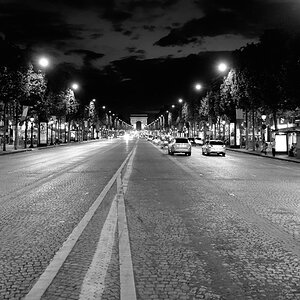
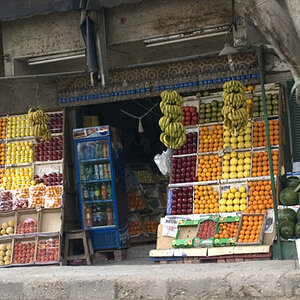
![[No title]](/data/xfmg/thumbnail/32/32926-ec27ecead8c80d803404500d8f888dbf.jpg?1619735754)
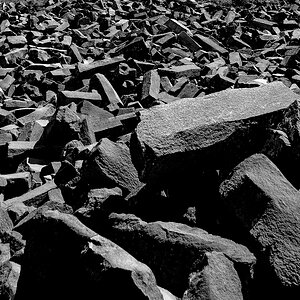
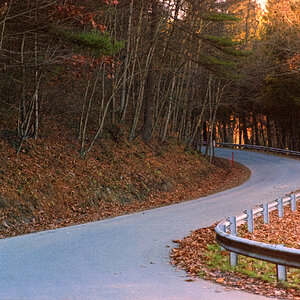

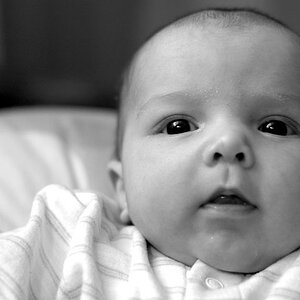
![[No title]](/data/xfmg/thumbnail/35/35948-700e0d840da0ca73727b1bd6d99b4142.jpg?1619737257)
![[No title]](/data/xfmg/thumbnail/35/35952-55c8d42ec1c6ff0e13b45356cbf9c068.jpg?1619737263)
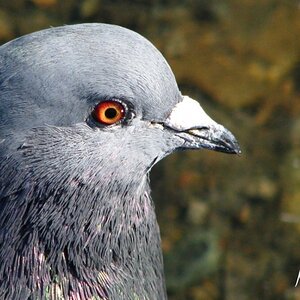
![[No title]](/data/xfmg/thumbnail/35/35946-771bfce9b2727c9126587d96c471da80.jpg?1619737254)